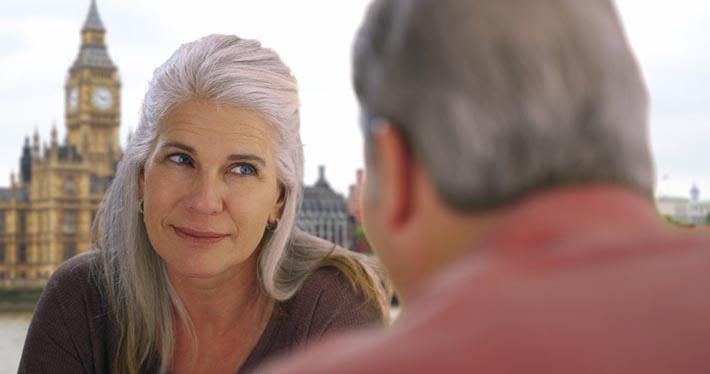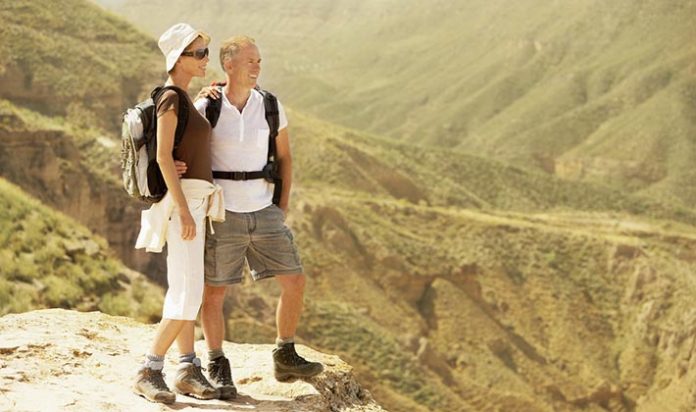So you’ve worked for most of your life and you finally saved up enough money to start traveling the way you’ve always wanted. But is it safe? Or should you just stay home? As it turns out, there’s a lot that older adults should consider before they start spending their savings on traveling – but the rewards you get out of it could be well worth the risk.
It’s Both Safe – and Very Healthy – to Travel as You Get Older
As long as you do it the right way, traveling as you get older isn’t just safe and fun – it’s also extremely healthy! But you have to be smart about it. If you’re going to sit on a cruise ship all day drinking from the open bar and stuffing yourself at the bottomless buffet, you’re not going to be doing yourself any health and wellness favors.
If you want the healthiest a bang for your buck, you should travel to destinations which involve challenging your brain and body mentally, cognitively, and physically. You’ll also have to eat a relatively healthy diet while doing your best to avoid pathogens from the local food and water. But if you can do all that, you can enjoy your trip along with a healthy dose of mind and body benefits.
Traveling Can Keep Your Brain in Good Shape
Traveling somewhere new and having to navigate an unfamiliar landscape will challenge your brain in ways that it would never get challenged at home. Challenging your brain is important because as we age, the less we challenge ourselves cognitively, the more vulnerable we become to brain atrophy. This becomes especially perilous with regard to diseases like Alzheimer’s or Parkinson’s. But traveling to a foreign country where you don’t speak the language or have to find alternate methods of transportation than you’re used to is a great way to fire up your brain and keep things fresh!
Traveling Is Good for Your Heart
Most people who travel actively are doing so to see the sights. Odds are, you’ll be doing a lot of walking around from place to place. That could involve:
- Touring a museum for hours
- Shopping in a crowded marketplace
- Visiting one (or several) historical landmarks
- Going on a nature hike in a famous wildlife preserve
- Swimming, snorkeling, or scuba diving in the ocean
The list goes on and on. The point is: the more physically active you are while on vacation, the better it will be for your heart and your overall physical health. So don’t be afraid to get or stay active on your getaway!
How to Travel Safely at Any Age

If you want to travel safely as an older adult, start by talking to your doctor. They can tell you everything you need to know about updating your vaccinations, taking medications in foreign time zones, and health risks such as DVT (deep vein thrombosis). They can also give you advice on foreign pathogens and how to safely avoid them.
If you have special needs or can’t get around as easily as you used to, call ahead to the places you know you’re going to visit and ask them about their accommodations. It may be a good idea to change your hotel, flight, or certain destination points if they cannot accommodate your needs to get around.
Make sure you have a secure way to travel with your important documents. Tourists are always more vulnerable to pickpocketing and theft, especially in foreign countries. Make sure you have the number of your country’s embassy on hand if you’re traveling abroad, and talk to the staff at your hotel or wherever you’re staying. Be sure to ask them how to protect yourself from local thieves or what to do if you get robbed.
Lastly, don’t underestimate your need for travelers insurance! We’re talking about health insurance as well as insurance on your belongings such as clothing or jewelry. Depending on where you go and what you do, lost belongings could be gone for good or difficult to retrieve. Getting healthcare in a foreign country can end up being very expensive for non-citizens if they demand upfront payment or if your insurance company doesn’t cover foreign travel. If you follow all of these tips, you should have a safe, healthy, wonderful trip. Bon voyage!






















































